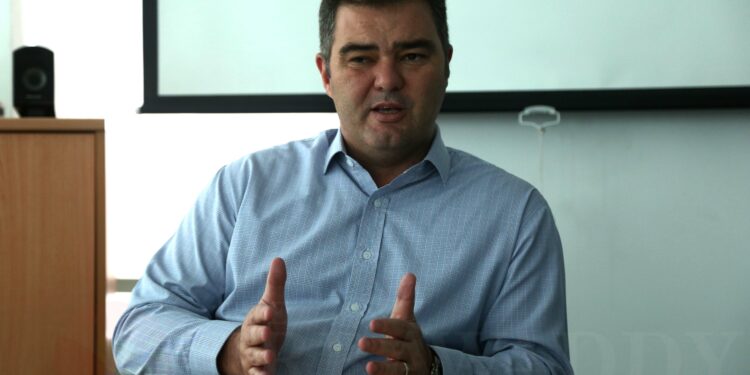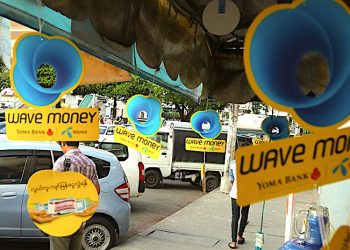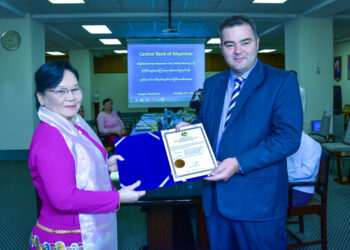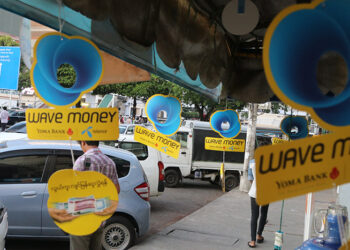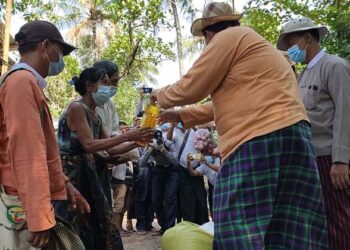RANGOON — Wave Money is a mobile financial services joint venture between Norway’s Telenor and Burma’s Yoma Bank. After its first year in Burma, 4,000 “Wave shops” have been set up across the country, where users can transfer money via mobile accounts or agents. Wave Money chief executive officer Brad Jones talks to The Irrawaddy about the potential market in Burma’s underdeveloped mobile financial sector.
What is mobile money? And what is the current market situation in Burma, considering this industry is still underdeveloped?
Mobile money is the ability to transfer money from one person to another, and we target people who don’t have bank accounts. People can easily transfer money around the country, and in our initial launch that’s what we’re having people do—transferring money through shops, agents or their mobile phones.
As new telecoms companies provide good infrastructure in the country now, Burma is one of the fastest growing mobile markets in the world. Smart phone access is rising, similar to in Malaysia and Thailand. Smart phone access and development of 3G and soon 4G networks provide a great opportunity for mobile money services. We can provide digital services to customers who are far away from banks. This is a huge opportunity for us.
What challenges do you face?
Burma is geographically a very large country. We have to develop mobile cash management models with Yoma Bank so we can have distributors in Wave shops providing e-money to our customers in many locations. We’re starting to work in some remote areas and it is challenging. But Yoma will be able to work this out through distributors and Wave shops that will provide e-money.
Who are your customers?
It’s very early for us and we’re seeing quite a range. It’s people in Rangoon who want to like us and are looking for trendy products. But also, there is a customer who works on a gas pipeline and transfers money back to his family. He is quite poor and has no bank account and he finds that this is an easy way for him to send money. So we’re seeing quite a variety of people using our service.
What about product expansion? Do you have plans to expand Wave shops across the country?
We now have 4,000 Wave shops across the country. We’re located in every region of Burma, with the exception of Arakan and Chin states—where we will launch soon. We will continue to expand and want to represent every township in the country.
As far as investment, what percentage shares do Yoma Bank and Telenor own?
Telenor owns 51 percent of the company, First Myanmar Investment owns 44 percent and Yoma bank owns 5 percent. The total investment is about US$17 million.
Do you plan to expand investment so as to launch new products?
Sure. We’re currently looking for new product opportunities. We have to wait for approval before expanding our existing products though.
Is it difficult working with the Central Bank of Myanmar because of the transition in government? Do you think this industry could be developed under the Central Bank’s supervision?
The Central Bank has come under fire lately, I have heard. We have no issue working with the Central Bank. Regulations are appropriate, there is a good balance of risk and there is flexibility.
Who are your competitors in the market?
At this stage we don’t really have any competitors, even though other operations have launched. What we’re waiting for is for other telecoms operators—like MPT and Oreedoo—to directly launch into the market. I am positive there will be competition in the market. One thing we’re concerned about is operators who aren’t regulated entering the market. It’s important that there’s a level playing field and that customers are protected. If customers are protected, firms are secure.


